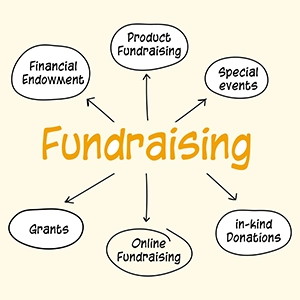*NOTE – links included herein are for informational purposes only. Neither the author nor the firm are in any way affiliated with any of the individuals or in any way endorse the influencers, their campaigns, or their beneficiaries*
In the run up to this year’s presidential election, author Shea Serrano published A Difficult Conversation, a guide to addressing the growing gap between the people who support Donald Trump and the people who do not. Priced at $0, it is a pay-what-you-want piece of art that, if you are familiar with Mr. Serrano’s Twitter feed, surprised no one. What is surprising is how much people voluntarily paid for the free e-book – at least $98,160.84 to date. In response, Mr. Serrano and his wife decided to donate all of the proceeds to the causes they believe in.
Mr. Serrano’s unexpected philanthropy fits a new pattern, for him and other social media celebrities. Celebrity philanthropy is not limited to the large televised “Live Aid” style fundraisers to raise awareness and funds for important causes. While that model still exists, social media has created new avenues for small scale, targeted relief amplified by passionate digital followers. In the early days of the COVID-19 pandemic, influencers made cash payments to those impacted by shuttered businesses and missed paychecks. This new trend is getting increasing attention, including from at least one former President.
While charities continue to directly raise funds from their current donors, they are finding new supporters through partnerships with these “influencers” , i.e. the individuals who have a large active following of enthusiastic fans on social media. Influencers have been working with charities for some time, and we’ve long known that consumers respond to them, in much the same way that celebrities shape consumer opinion in the for-profit world. What’s new is the way in which some influencers establish a relationship with their followers and charities; instead of entering into partnerships up front, social media and e-commerce allows influencers to raise large amounts of cash and distribute it to charities and directly to individuals without any extra infrastructure.
With innovations come new questions. In the case of influencer philanthropy, those questions tend to center on compliance. Influencers, and the charities they support, must take into account the social media platforms rules as well as local, state, and federal laws. In this article, I highlight some of the possible issues and considerations. I examine a few different fundraising strategies I’ve noticed. In each case, the considerations for charities may differ from those of influencers. Some methods are straightforward, requiring little if any compliance considerations for influencers and charities. Methods involving partnerships with for-profit companies or cash giveaways by influencers can have tax and other compliance consequences.
Summary of Influencer Fundraising Models
There are a few ways that influencers try to do good. As described above, sometimes they publicize gifts after-the-fact, creating a halo effect for the influencer as well as spotlighting the charities or causes benefiting from the influencer’s gifts. For these after-the-fact gifts, there’s no pre-existing agreement between an influencer and the charity. In fact, the charities or the individuals receiving gifts might not know that a gift is coming until they receive a check (or Venmo or CashApp or PayPal).
Another model that has emerged recently is the direct cash disbursement which is advertised in advance to the influencer’s followers. While these types of disbursements aren’t new, they became prominent in the early stage of the pandemic. Influencers told their followers that they had cash to give away– all followers had to do for a chance to receive some cash was comment on the influencer’s post and follow other Instagram accounts that had paid for the privilege of being part of the promotion. The influencer would, in turn, receive a payment from a social media marketing firm that set up the campaign.
A third method involves influencers asking their followers to send cash which the influencer will then distribute. The recipients of the cash vary – sometimes the funds are given to organizations, in other cases the money is given to individuals that the influencer deems worthy of support. At times the influencer will be specific about the organization or person that is the intended recipient, but many times the beneficiary is open-ended.
A fourth method involves for-profit charitable partnerships. For example, a dog-themed Instagram account raises awareness for a local shelter by telling their followers about a charitable sales promotion where the purchase of a particular dog food triggers a donation to the shelter. The influencer may be compensated by the for-profit, the nonprofit, or may receive no compensation at all, depending on the arrangement. Alternatively, an influencer might try to sell one of their own products (a book, for instance) and include a promise to donate some proceeds to charity.
Finally, some influencers simply attempt to drive traffic to individual fundraising campaigns that are already underway. One of Twitter’s most popular canine evaluation accounts, @dog_rates, highlights one or two fundraisers every Friday to support a dog and its humans. The influencer selects one campaign to highlight, driving small dollar donations from the account’s 8.8 million followers.
Compliance Issues
For each of the models described above, there are a few overarching compliance issues that influencers and charities need to consider. There may be tax consequences from their fundraising, for influencers, charities, or their donors. They must also review the terms and conditions for the sites on which they’re fundraising.
Platforms
The platforms’ rules are the first thing to review before launching a new fundraiser. Facebook, Twitter, and Instagram each publish specific rules governing promotions and fundraisers. In each case, some of each platform’s general guidelines will also apply to influencer fundraisers, such as the rules encouraging authenticity and discouraging fraud.
Federal Trade Commission
In addition to the platforms, the Federal Trade Commission (FTC) has published guidelines on the appropriate disclosures for influencer behavior. While targeted primarily at influencers working with for-profit brands, the disclosure guidelines are helpful for all influencers interacting with US users. These recommendations include:
- Tell users if you will receive any kind of financial, employment, personal, or other benefit in connection with a post
- Ensure that disclosures are prominent
- Use clear, simple language
- Be honest
These types of disclosures are especially important if an influencer’s post involves any possible compensation for the influencer. For instance, if the influencer is selling an item and promises that a portion of the proceeds will go to charity, they should be clear how much will be donated (a percentage or flat amount per sale), how long the promotion runs, which charity will receive the donation(s), and if there’s a minimum guaranteed donation. If the influencer is being paid to help drive dollars or attention to a charity or fundraiser, they should include a disclosure to that effect so their followers understand their motivation.
Taxes
Influencers, charities, and individuals each need to consider the tax consequences of online fundraisers. Whenever influencers collect donations from their followers, they may need to report those donations as income. There are exceptions where the influencer is acting as the agent for the recipient, but the default rule is generally that income is taxable. If the influencer makes a donation directly to an individual rather than to a charity, the individual should be able to treat the income as a gift (and therefore not taxable) but should check with a professional to confirm. There may be ways to structure a campaign to ensure the recipient doesn’t have a big tax bill if the fundraiser is especially successful.
Next, some donors want to know if their donation is tax-deductible. Although small donors aren’t typically taking their tax bill into consideration when they decide to send $10 to an influencer, the influencer collecting donations should clarify whether donors will be eligible for a tax deduction. There are multiple ways to structure campaigns that may permit donations to be tax-deductible.
State Registrations
If an influencer is receiving any kind of compensation in exchange for raising money for a charity, they may have to register to solicit with one or more states. They could be considered either a professional fundraiser or a commercial co-venturer, depending on the arrangement. Each state treats paid fundraisers differently, so the influencer must be careful to check with counsel who understand what filing requirements apply.
Best Practices
Regardless of what rules apply, best practices for any kind of fundraiser are diligence and transparency. Influencers can be diligent by planning out their posts and fundraisers. The first step is to research the charity that the influencer seeks to support. As multiple organizations may have confusingly similar names, checking will help to avoid directing someone to the wrong organization! Unless the influencer has first-hand knowledge of the charity, they should also review the charity’s most recent financial filings to make sure it is healthy and can legally use the funds the influencer plans to raise.
The influencer should get in touch If they have identified a charity they want to support. The charity may agree to collaborate to increase the influencer’s reach or, at the least, capitalize on the attention the influencer will bring. The charity may also want to set some guidelines, either through a formal agreement or just through discussions, to make sure the influencer doesn’t do or say anything that would harm the charity’s reputation or tax status.
Finally, the influencer should value transparency by explaining exactly what they plan to do with the money they raise, including the timing for distribution, the intended recipients, and what is yet unknown. It’s possible that the influencer won’t know in advance who will receive the cash they raise, but that’s not necessarily a problem. If the influencer sets some criteria, that at least should be shared with their followers.













